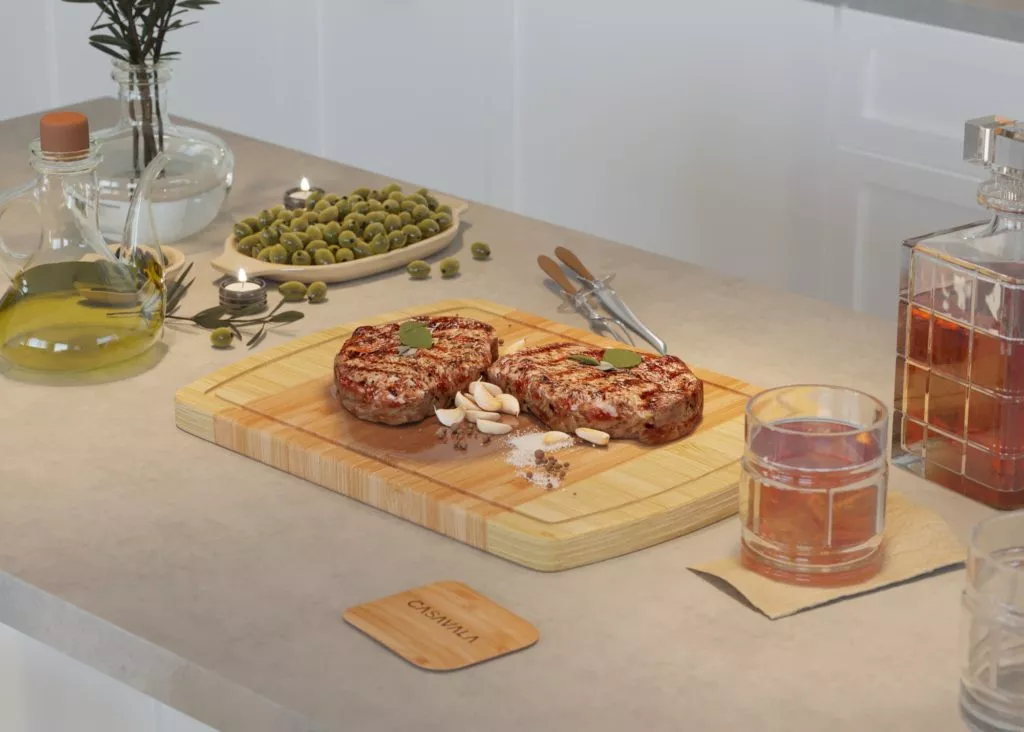If you’re looking into a bamboo cutting board or recently purchased one, congratulations! You wouldn’t regret it.
Recently, these cutting boards have become one of the most-admired culinary items. That is for good reason. Not only is bamboo a sustainable option, but it is also durable, requires less maintenance, and looks aesthetically pleasing.
We put together the Internet’s and our customers’ most asked questions about bamboo boards. Here they are:
Will bamboo cutting boards dull knives?
When it comes to our cutting boards, the best option is one that won’t harm our knives.
Here’s a straightforward fact: poorly made bamboo cutting boards can dull knives faster than plastic cutting boards. The culprit is the presence of excessive sand and glue.
Yet, high-quality bamboo boards are very forgiving to knives. They are made porous enough to not wear down your knife’s edges. This porous consistency also works well against cut scarring.
Is a bamboo cutting board dishwasher safe?
By default, any wooden culinary tool isn’t recommended to be cleaned in a dishwasher. This includes bamboo cutting boards. Prolonged exposure to water and heat will break, crack or warp wooden boards.
The right way to clean a bamboo cutting board is simple. Just wash it with a gentle dish soap and warm water. Rinse the board, wipe excess moisture, and store in a cool dry place in an upright position. Let it air dry.
When it comes to disinfecting or removing sticky, foul odors, you can use pure white vinegar. First, clean the board with soap and water then wipe it with vinegar. Let it sit for about three minutes. Rinse and air dry. Using lemon juice and salt will also remove stubborn odors. Sprinkle salt over the board then add some lemon juice. Rinse and air dry.
How long does a bamboo cutting board last
Bamboo cutting boards are made differently from one another. So there is no lifespan timeframe of how long a specific board can last. Usage and maintenance care also affect a board’s lifespan.
With proper care, a bamboo cutting board can last for years. As long as it is properly cleaned, kept away from moisture and heat, and seasoned as needed, a bamboo cutting board can last many years.
How do I season my bamboo cutting board?
Moisture and heat are the top reasons why a wooden cutting board gets damaged easily. The more moisture or heat there is, the more chance it will warp or break. The best thing to do is keep the board out of wet areas, air dry as soon as ever after use, and make sure to store it in a cool, dry place.
Seasoning a cutting board creates a protective coating that repels water and prevents moisture absorption. For best results, use a food-grade mineral oil such as beeswax and linseed oil.
Are bamboo cutting boards better than plastic?
With use, plastic cutting boards can chip, leaving microplastics which may embed into the food. This is why wooden cutting boards such as a bamboo one is considered the better, food-friendly alternative. Compared to plastic boards that tend to get worn out faster, the resilient characteristics of bamboo cutting boards make them resistant to scars and scratches.
Are bamboo cutting boards safe for meat?
Absolutely! Their porous consistency makes slicing fruits, vegetables, and meats easy. As bacteria thrive in moisture, it is important that your board repels moisture. The porous and dense characteristics of bamboo keep out water.
Do you have questions about our bamboo cutting boards?
We’d love to hear from you. You can send your questions to info@casavala.com

